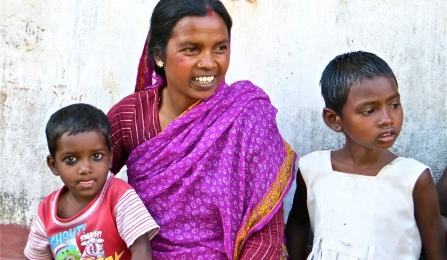Maternal and Child Health

The India Foundation provides a free medical clinic for street children. The Office of Global Health Initiatives partners with the India Foundation to provide support for the operations of three modest clinics and support the expansion of care for street children.
The Indian Institute of Cerebral Palsy seeks to bring positive changes in the lives of people with cerebral palsy through policies and service provisions designed to enhance their individual skills and knowledge as well as give them opportunities to exercise their constitutional rights and participate and contribute to the community and country. The Office of Global Health Initiatives partners with the Indian Institute of Cerebral Palsy in Kolkata on a project to develop a new training model for community-based workers who care for and support disabled children.
Johnson Nkosi Memorial HIV/AIDS Orphan Primary School
The Johnson Nkosi Primary School is a collection of classrooms, dormitories, demonstration gardens and play space for children founded to provide a safe and free environment where living with HIV/AIDS carries no stigma. Three hundred and fifty children, ranging from 3 to 17 years old, attend the school. One third or these children are orphans and vulnerable children who attend Nkosi for free. The Office of Global Health Initiatives partners with the primary school to provide a series of public health interventions to prevent illness and improve student health including insecticide-treated bed nets, safe water, sanitary latrines, handwashing and a dispensary.
Reach India is a social enterprise that brings proven training and services to disadvantaged girls, women and the organizations that serve them. They provide a network of sustainable service centers--social businesses capable of training thousands of committed local organizations to deliver behavior change education. They are supported by Reach Global, which develops education on health, livelihood and family finance. The Office of Global Health Initiatives partners with Reach India on a project to survey a community about health concerns, and train 10 community health workers. Each community health worker provides education, referral, motivation and health products to 20 women's self-help groups.


